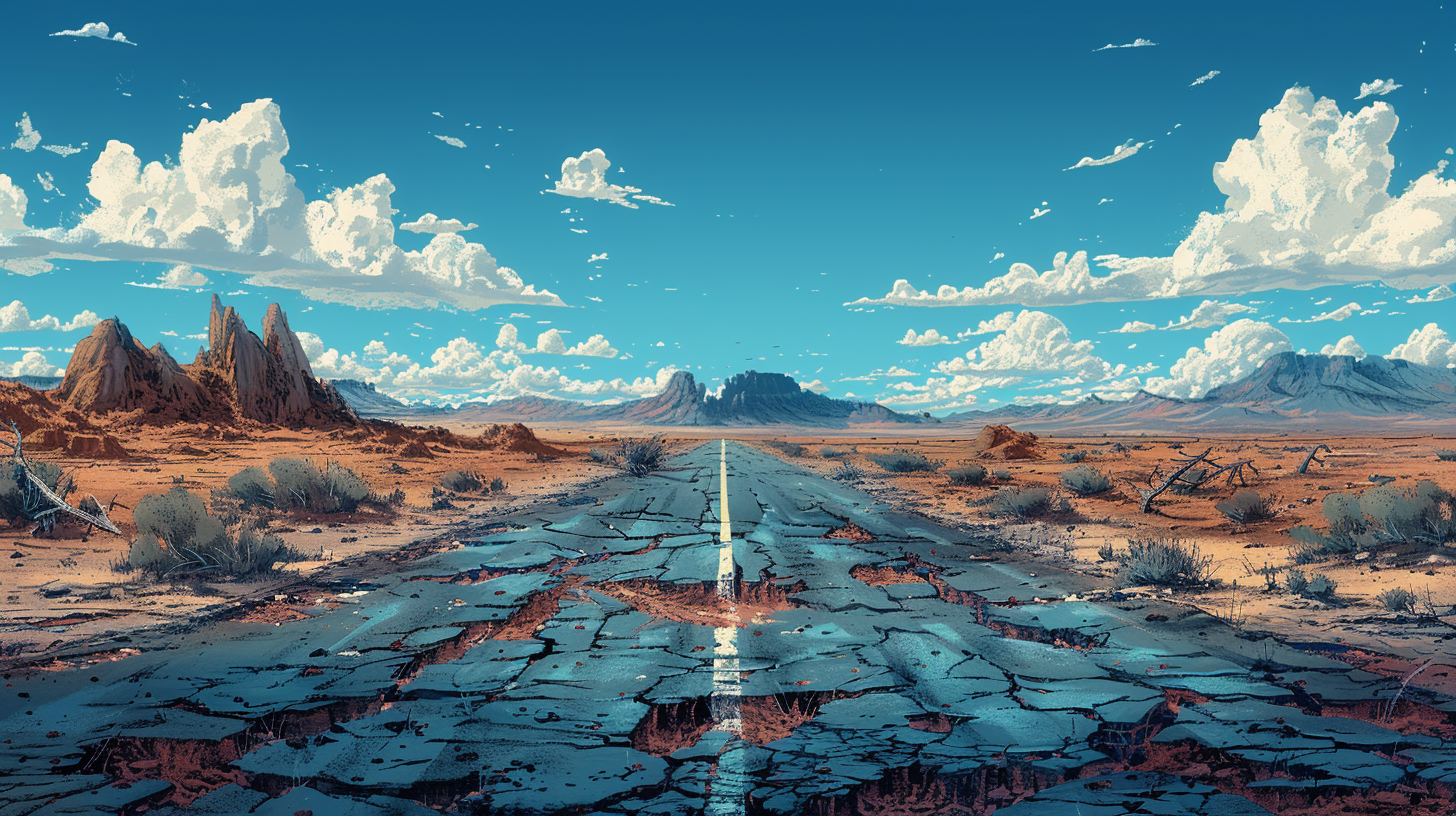
With the largest network of roads in the world, driving on the open highway is practically an American pastime. As we found out in ConsumerAffairs’ study of the “states with the most dangerous highways,” we also discovered that the physical nature of the roads in many states are pockmarked with soft shoulders, pitted asphalt, and just enough shoddy workmanship to make those roads dangerous by themselves.
By collecting data from the Federal Highway Administration, ConsumerAffairs analyzed which states have the worst (and best) roads based on both safety and road quality. We also surveyed residents throughout the nation to read the signs on which states are making the grade and where you’re in for a rough ride.
And the trophy for worst goes to…
Overall, the 50 states combined score an average of 7 out of 10. That’s not bad, but what is bad is Rhode Island which got a Golden Glob of Asphalt for having the worst roads.
The Ocean State has its reasons, the primary one being the harsh winters and the cold temperatures, crazy freeze-thaw cycles, and constant snow plowing which could probably wear any road anywhere out.
Then, there’s funding. It’s expensive to keep those roads up to snuff and Rhode Island may not be throwing enough money at the situation to repave or repair quickly enough.
No luaus here
The states in second and third are odd bedfellows because their weather is the complete opposite of Rhode Island: Hawaii and California.
More than 25% of Hawaii’s urban roads rated poor and 17% of rural roads similarly failed to make the grade. The state can blame Mother Nature for much of that and all the associated rockslides and flash floods, but there’s also wear and tear from livestock usage and the nearly 10 million visitors who travel to Hawaii every year. Not to mention – like Rhode Island – a lack of funding to keep the roads up to par.
And no California dreaming, either
But, California? It’s certainly got sunshine on its side and it invests more than $20 billion in highways each year.
“However, this is an outsized job since, in addition to 840 miles of coastline, California boasts more miles of urban roads than any other state and has the second-highest mileage of rural roads in the country,” ConsumerAffairs analysts wrote.
Even at that, the percentage of rural roads that rated poor in California was a decent 5%. However, where California takes the biggest hit is its percentage of urban roads rated poor: 44%.
“There are streets and roads that need to be repaved due to potholes, uneven pavement or weather damage,” one San Francisco resident complained.
A beaucoup of bad roads
There’s more bayou boogie in Louisiana than what you’ll find in the French Quarter. Once you get outside of New Orleans, nearly a quarter of the roads you’ll drive on are in poor condition.
That leads to Louisiana having the fifth-highest number of fatal motor vehicle accidents per mile driven and an honor no consumer wants – that of the second most expensive car insurance in the country. The average annual policy premium costs $2,546 in Louisiana, about $864, or 51%, more than the national average.
Most of our survey respondents reflected their bumpy experiences and many shared complaints about vehicle damage. “I sometimes wonder where my tax money goes! I've had two front-end alignments within two years because of the roads,” one respondent said. “Our state is not known for maintaining infrastructure,” said another.
On Wisconsin, on Wisconsin…
No, that should read “Stay off Wisconsin, off Wisconsin” roads. A significant portion -- 28% -- of urban roads in Wisconsin are rated in poor condition for roughness.
But, the politicians may have figured out a solution: toll roads! As it stands now, there are no toll roads in Wisconsin, one of only 15 states in the country. Highway construction and maintenance are funded in part by motor fuel tax revenues and drawn from the State General Fund.
Some Wisconsin residents surveyed said the Badger State should be badgered into taking better care of the roads. “Many of the roads around the state are in very poor condition,” one survey respondent said. “We have winters with lots of snow, salt trucks [and] freezing weather, and it’s not good for the roads.”
Photo Credit: Consumer Affairs News Department Images
Posted: 2024-03-14 15:30:13




















